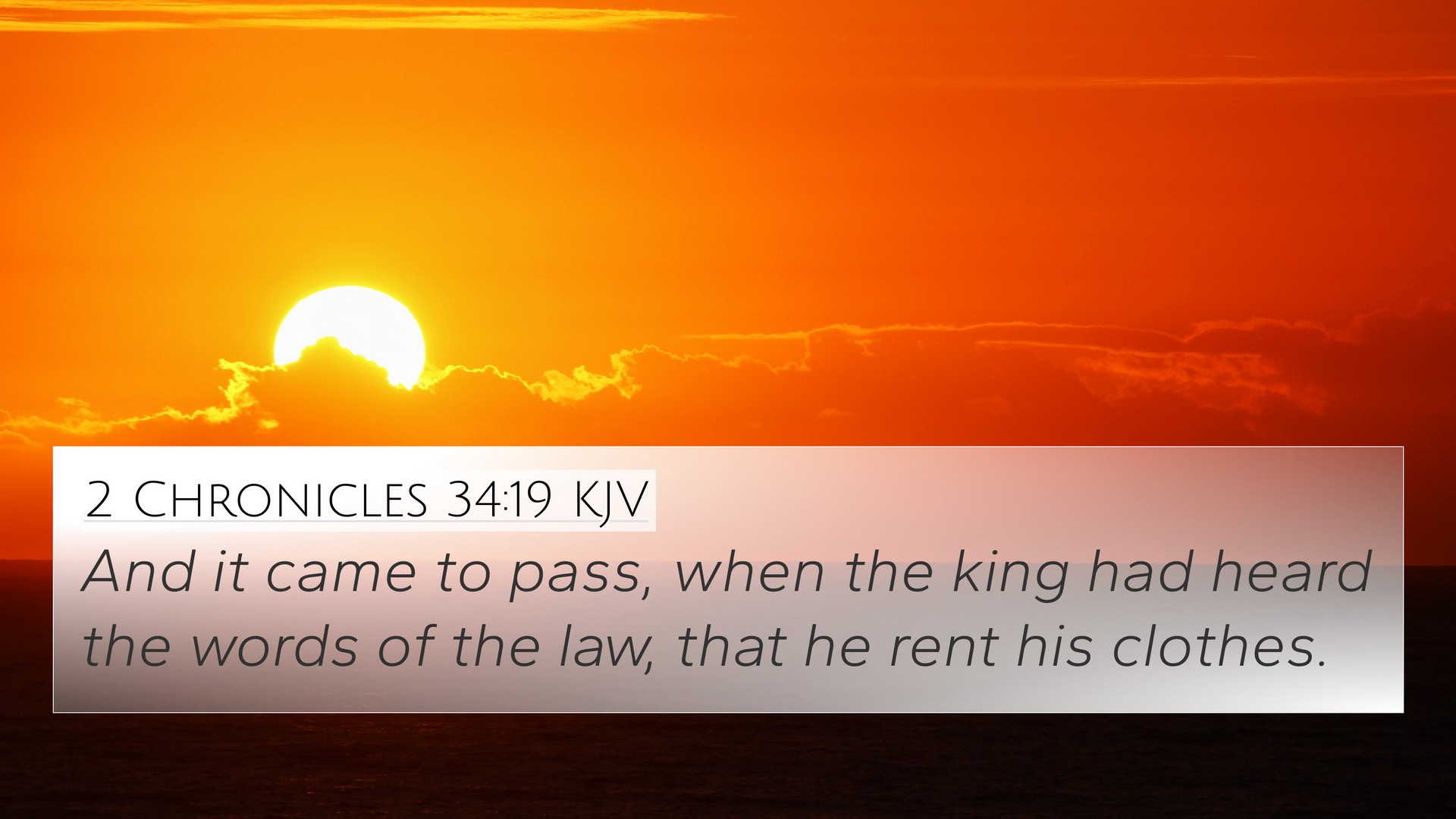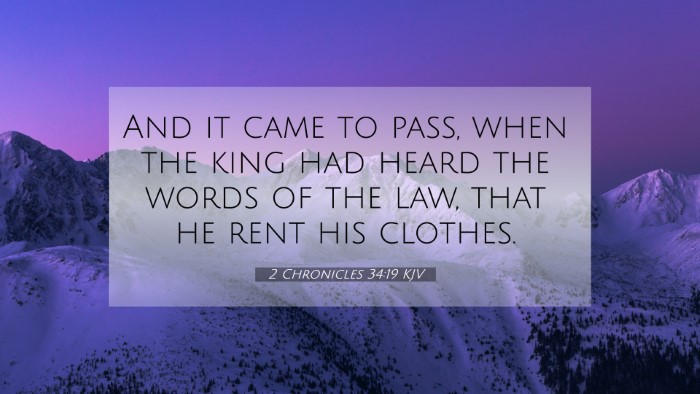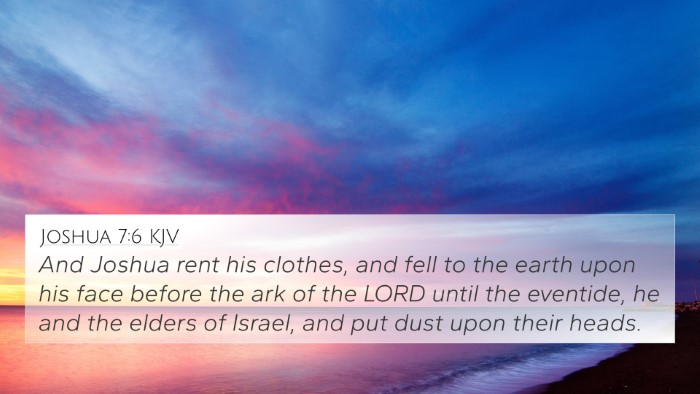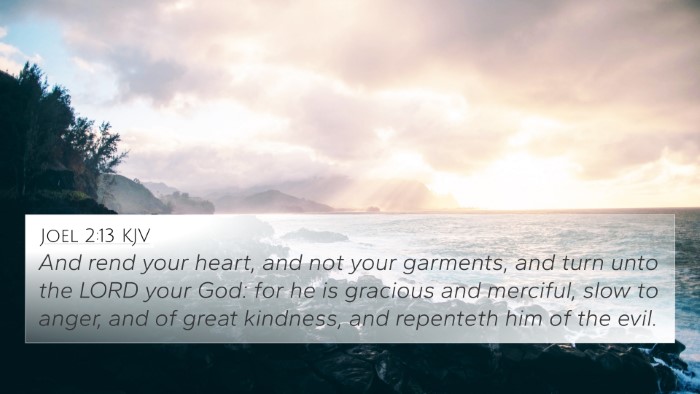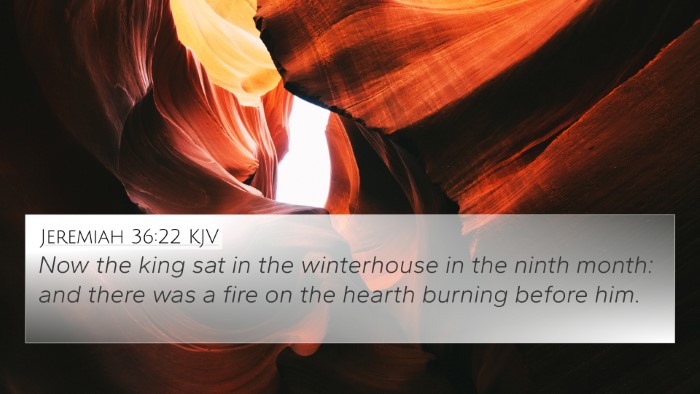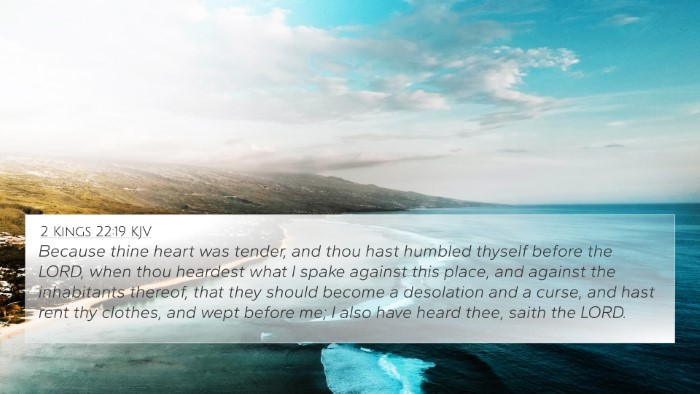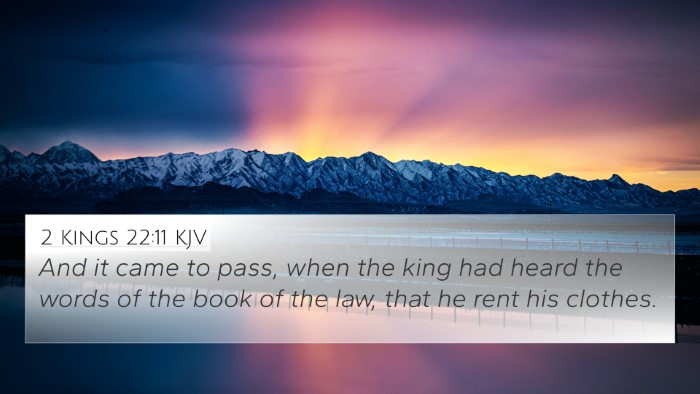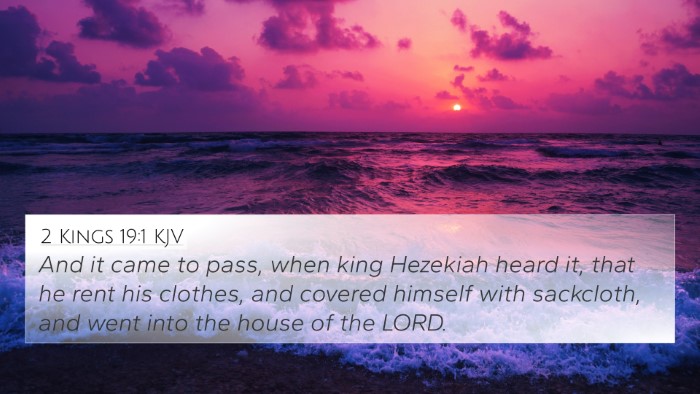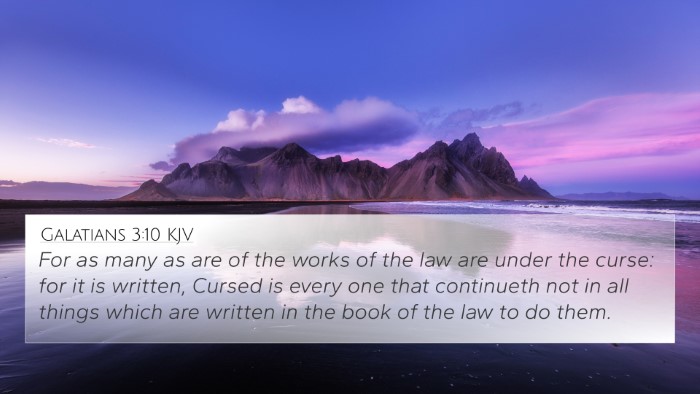Understanding 2 Chronicles 34:19
Verse: “And it came to pass, when the king had heard the words of the law, that he rent his clothes.”
Contextual Overview
This verse occurs during a significant moment in King Josiah’s reign over Judah. Upon discovering the Book of the Law in the Temple, Josiah is moved to repentance and sorrow for the sins of his people. This reaction signifies a pivotal turning point in Israel's history, highlighting the importance of God's word.
Bible Verse Cross-References
- 2 Kings 22:11-13: This parallel passage recounts the same event, emphasizing the king's deep remorse upon reading the Law.
- Deuteronomy 31:11-13: This scripture directly relates to the reading of the Law and the need for Israel to remember God's commandments.
- 2 Chronicles 35:19: This verse illustrates the fulfillment of Josiah's reform efforts as he leads the people back to God.
- Nehemiah 8:9-10: Similar reactions of mourning and joy are shown when the Law is rediscovered and read aloud.
- Psalms 119:136: The psalmist expresses sorrow over the people's disregard for God's word, parallel to Josiah’s mourning.
- Romans 7:7: Paul discusses the role of the Law in revealing sin, similar to how it affected Josiah.
- Matthew 5:17: Jesus affirms the importance of the Law, connecting to the reverence shown by Josiah.
Interpretations and Insights
According to Matthew Henry's Commentary, this act of tearing his clothes symbolizes deep grief and a recognition of the seriousness of the sins committed by the nation. It reflects an awareness of the disconnect between the people’s current state and their covenant with God.
Albert Barnes elaborates on the significance of Josiah’s reaction, indicating that genuine repentance often manifests in visible forms of mourning. This expression was culturally significant, marking a sincere return to obedience before God.
Adam Clarke notes the gravity of this moment—Josiah's humility before God represents a model for leaders in spiritual crisis. Josiah’s actions serve as an invitation to all believers to examine their lives against God's moral standards.
Thematic Bible Verse Connections
This verse invites us to consider the broader themes of repentance, restoration, and the centrality of Scripture in the lives of believers. It resonates with other passages that emphasize God's expectation of obedience and the heartfelt return of His people.
Reflection on Repentance
The tearing of clothes by Josiah is more than a cultural gesture; it signifies the devastating weight of sin and the hope of repentance. In the New Testament, we see a continuation of this theme as individuals are called to repent and turn back to God through Jesus Christ.
Conclusion
2 Chronicles 34:19 encapsulates the essence of spiritual awakening and the necessity of acknowledging God's word. In searching for connections and cross-references within Scripture, we see how powerful the interaction with God’s Law can be in transforming hearts and leading to communal restoration.
Tools for Bible Cross-Referencing
Understanding the connections between various scriptures can be greatly aided by utilizing a Bible concordance or Bible cross-reference guide. These tools help uncover cross-referencing Bible study methods and delve deeper into Bible verses that relate to each other.
How to Use Bible Cross-References
To effectively identify Bible cross-references, you can:
- Utilize a thorough Bible concordance.
- Engage in cross-reference Bible study by examining themes across both the Old and New Testaments.
- Trace Bible verse parallels through specific keywords and phrases found in scripture.
Identifying Connections Between Old and New Testament
As demonstrated in Josiah’s story, the themes of obedience and repentance span throughout the entirety of the Bible. The comparative study of Pauline epistles also explores the role of grace versus the law, showing continuity in God's desire for His people to live by His standards.
Cross-Referencing Themes in the Bible
In comparison with the Gospels, notice how Jesus often refers to the Scriptures Josiah honored. For example, the links between the Prophets and Apostolic teachings reveal a consistent message concerning righteousness and repentance. This inter-Biblical dialogue underscores the timelessness of God's covenants.
